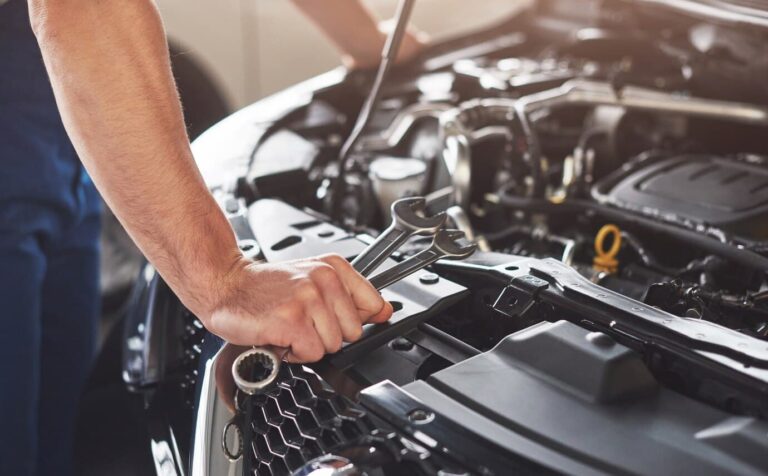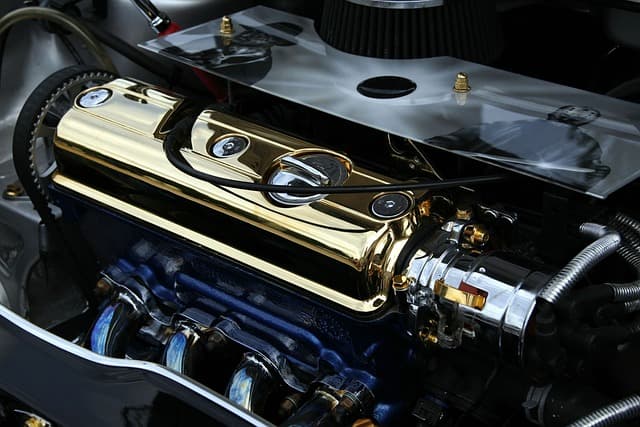Ah, chip tuning. Back in my day, if you wanted more power from your car, you had to get your hands dirty. You’d pop the hood, tinker with carburetors, and maybe swap out a few parts. But today, it’s a whole different ball game. The modern marvel known as chip tuning has revolutionized how we enhance our vehicles’ performance. Let me take you on a journey through the intriguing world of chip tuning, a realm where computers and engines dance in harmony to produce power and efficiency like never before.
What is Chip Tuning?
At its core, chip tuning is the process of modifying or replacing the microchip in a vehicle’s Electronic Control Unit (ECU) to achieve better performance. The ECU is the brain of your car, controlling everything from fuel injection to ignition timing. By altering its programming, you can unlock hidden potential and make your engine run more efficiently and powerfully.
The Benefits of Chip Tuning
1. Increased Horsepower and Torque
One of the primary reasons car enthusiasts turn to chip tuning is the significant boost in horsepower and torque. By optimizing the air-fuel ratio and adjusting the ignition timing, chip tuning can make your engine deliver more power than the manufacturer originally intended. This increase in power translates to better acceleration and a more responsive driving experience.
2. Enhanced Fuel Efficiency
Believe it or not, chip tuning isn’t just about making your car go faster. It can also help you save money at the pump. By fine-tuning the engine’s parameters, chip tuning can improve fuel efficiency. This means you’ll get more miles per gallon, reducing the frequency of those dreaded trips to the gas station.
3. Improved Throttle Response
Have you ever felt a delay when you press the accelerator pedal? Chip tuning can eliminate that frustrating lag, providing a more immediate and smooth throttle response. This makes for a more enjoyable and engaging driving experience, especially during overtaking maneuvers or spirited driving sessions.
4. Customized Performance
One of the beauties of chip tuning is the ability to tailor your car’s performance to your specific needs and preferences. Whether you’re looking for a high-performance setup for the track or a more fuel-efficient configuration for daily commuting, chip tuning can be customized to meet your goals.
5. Increased Towing Capacity
For those who use their vehicles for towing, chip tuning can be a game-changer. By optimizing the engine’s torque output, chip tuning can enhance your vehicle’s towing capacity, making it easier to haul heavy loads without straining the engine.
How Does Chip Tuning Work?
Now, let’s delve a bit into the technical side of things. Chip tuning involves accessing the ECU’s software and altering its code. This can be done in several ways:
1. OBD Tuning
The On-Board Diagnostics (OBD) port, typically located under the dashboard, allows for easy access to the ECU. OBD tuning involves connecting a tuning device to this port and uploading new software to the ECU. This method is quick and convenient, often taking just a few minutes.
2. Bench Tuning
Bench tuning, on the other hand, requires removing the ECU from the vehicle and physically opening it to access the microchip. The chip is then either reprogrammed or replaced with a modified version. This method is more invasive but can offer more extensive tuning options.
3. Piggyback Modules
Piggyback modules are external devices that intercept and modify signals between the ECU and the engine components. These modules can be installed without altering the original ECU software, providing a less permanent tuning solution that can be easily reversed if needed.
Potential Risks and Considerations
While chip tuning offers numerous benefits, it’s important to approach it with caution. Here are a few considerations to keep in mind:
1. Warranty Voidance
Modifying your ECU can void your vehicle’s warranty. If your car is still under warranty, it’s crucial to weigh the benefits against the potential loss of coverage.
2. Mechanical Stress
Increasing horsepower and torque can put additional stress on your engine and drivetrain components. Ensure that your vehicle is in good mechanical condition and consider upgrading other parts, such as the cooling system and exhaust, to handle the increased performance.
3. Legal Implications
In some regions, modifying your vehicle’s ECU is subject to strict regulations. Make sure to check local laws and regulations before proceeding with chip tuning to avoid any legal issues.
The Future of Chip Tuning
As technology continues to advance, so does the world of chip tuning. We’re seeing more sophisticated tuning software and devices that allow for even greater customization and performance gains. Additionally, the rise of electric and hybrid vehicles presents new opportunities and challenges for tuners, as they explore ways to enhance the performance of these cutting-edge drivetrains.
Tools and Software for Chip Tuning
1. ECU Flashing Tools
When it comes to chip tuning, ECU flashing tools are essential. These devices allow you to read and write data to the ECU, enabling you to upload custom maps and settings. Popular tools include:
- KESSv2: Known for its user-friendly interface and wide range of supported vehicles.
- MPPS: A versatile tool that offers advanced features for professional tuners.
- Galletto: A reliable choice for both beginners and experienced tuners.
2. Tuning Software
To create custom maps and settings, you’ll need robust tuning software. Some of the most popular options are:
- ECM Titanium: Offers an extensive database of predefined maps, making it easier to find the right settings for your vehicle.
- WinOLS: A powerful tool that provides advanced features for creating and editing custom maps.
- TunerPro: A free software option that offers a wide range of features for DIY tuners.
Real-Life Chip Tuning Success Stories
1. Boosting a Family Sedan
Take, for example, the story of John, a family man with a penchant for spirited driving. He owned a 2018 Ford Fusion, a solid and reliable car, but it lacked the excitement he craved. After doing his research, John decided to give chip tuning a shot. By remapping the ECU, he was able to increase the Fusion’s horsepower from 240 to 300 and improve its fuel efficiency by 10%. The result? A practical family car that could also deliver a thrilling driving experience.
2. Transforming a Workhorse Truck
Then there’s Sarah, who relied on her 2015 Chevrolet Silverado for her landscaping business. The truck needed more towing power and better fuel economy. Through chip tuning, Sarah managed to enhance the Silverado’s torque output, allowing her to tow heavier loads without any strain. Additionally, the tuning improved her fuel efficiency by about 15%, saving her money on fuel costs.
Common Myths About Chip Tuning
1. Chip Tuning is Only for Performance Cars
While it’s true that performance enthusiasts are drawn to chip tuning, it’s not exclusive to sports cars. As the stories of John and Sarah illustrate, chip tuning can benefit a wide range of vehicles, from family sedans to heavy-duty trucks.
2. Chip Tuning Will Damage Your Engine
This myth stems from the fear of pushing an engine beyond its limits. While improper tuning can indeed cause harm, professional and well-researched chip tuning is designed to stay within safe parameters. As long as you follow guidelines and ensure your vehicle is in good condition, chip tuning can be both safe and effective.
3. It’s a One-Size-Fits-All Solution
Chip tuning is highly customizable. The modifications made to an ECU are tailored to the specific vehicle and its owner’s needs. Whether you want more power, better fuel efficiency, or improved throttle response, chip tuning can be adjusted to meet your goals.
How to Choose a Chip Tuning Service
1. Research and Reviews
Look for tuning services with positive reviews and testimonials. Online forums and car enthusiast communities can be excellent resources for finding reputable tuners.
2. Experience and Expertise
Choose a tuning service with experience in your specific make and model. Experienced tuners will have a better understanding of the nuances and limitations of your vehicle, ensuring a safer and more effective tuning process.
3. Support and Warranty
A good tuning service should offer support and a warranty for their work. This not only provides peace of mind but also ensures that any potential issues can be addressed promptly.
DIY Chip Tuning: Pros and Cons
Pros:
- Cost Savings: DIY tuning can be significantly cheaper than professional services.
- Learning Experience: Tuning your vehicle can be a rewarding and educational experience.
- Customization: You have complete control over the tuning process, allowing for a highly personalized setup.
Cons:
- Risk of Damage: Without proper knowledge and tools, there’s a risk of damaging your ECU or engine.
- Time-Consuming: DIY tuning requires a significant time investment to learn and execute properly.
- Limited Support: If something goes wrong, you may have limited options for assistance.
Final Thoughts
Chip tuning is more than just a technical upgrade; it’s a journey into the heart of your vehicle. By unlocking the potential of your engine, you can transform your driving experience in ways you never thought possible. Whether you’re a seasoned car enthusiast or a curious beginner, the world of chip tuning offers endless possibilities.
Remember, the key to successful chip tuning lies in understanding your vehicle, choosing the right tools and software, and approaching the process with care and caution. With the right approach, you can maximize your engine’s power and enjoy the many benefits that chip tuning has to offer.
So, old friend, if you’re ready to breathe new life into your trusty steed, chip tuning might just be the key. Take the plunge, and discover the exhilarating world of enhanced performance and efficiency. Happy tuning, and may your journeys be filled with power and precision!
Frequently Asked Questions (FAQs)
1. Is chip tuning safe for my car?
Yes, when done correctly by professionals or with proper research and tools, chip tuning is safe and can enhance your vehicle’s performance without causing damage.
2. Can chip tuning improve my fuel economy?
Absolutely. By optimizing the engine’s parameters, chip tuning can improve fuel efficiency, helping you save money on fuel.
3. Will chip tuning void my warranty?
Modifying your ECU can void your vehicle’s warranty, so it’s essential to check your warranty terms before proceeding with chip tuning.
4. How much does professional chip tuning cost?
The cost can vary widely depending on the vehicle and the complexity of the tuning, but you can expect to pay anywhere from $300 to $1000 for professional services.
5. Can I reverse the chip tuning if I don’t like it?
Yes, most chip tuning modifications can be reversed if you decide to return your vehicle to its stock settings.
Explore, experiment, and enjoy the world of chip tuning. Whether you seek power, efficiency, or a bit of both, chip tuning can help you unlock the true potential of your vehicle.























+ There are no comments
Add yours